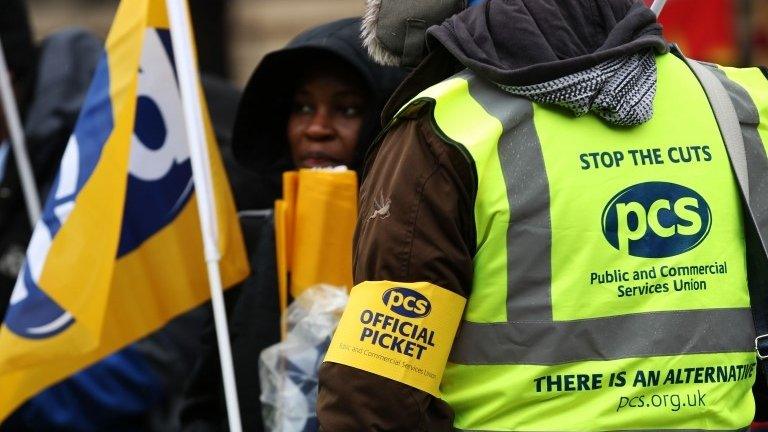Automatic union fee payments 'to end in public sector'
- Published
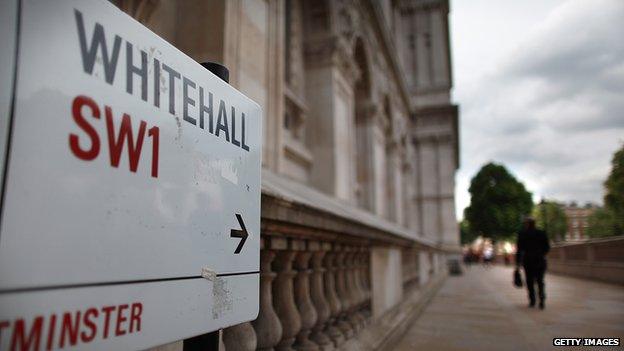
Plans to stop public sector workers automatically paying subscriptions to trade unions through their salaries have been unveiled by the government.
Ministers say the process is "outdated" and ending it would give workers more control and save more than £6m a year by cutting employers' administration.
But unions could lose funds and say it is a "vindictive political attack" that will "poison industrial relations".
Labour leadership contenders spoke out against the proposal.
It follows plans for reforms of union laws, including tighter strike rules.
Civil servants, teachers and nurses are among the union members who will have to arrange for the fees to be collected from their bank accounts by direct debit, under the proposals to update legislation in the Trade Union Bill, external.
The government says the so-called check-off system of taking union dues through wages was introduced at a time when many workers did not have bank accounts.
It said it was now a "taxpayer-funded administrative burden" on employers.
Cabinet Office Minister Matthew Hancock said: "In the 21st century era of direct debits and digital payments, public resources should not be used to support the collection of trade union subscriptions.
"We are bringing greater transparency to employees - making it easier for them to choose whether or not to pay subscriptions and which union to join."
Committed members
Labour leadership hopeful Andy Burnham said the move appeared to be "vindictive", and was "part of an ongoing campaign of demonisation against trade unions".
Yvette Cooper said many people found the current system "easy to use and convenient", adding that the government's "assault on workers' rights" would lead to more industrial disputes.
Liz Kendall added: "Tory governments always undermine union rights - I'd oppose these attacks and repeal them in government."
The TUC said the government was "determined to re-balance power in the workplace, so that workers lose their voice and their rights".
TUC's assistant general secretary Paul Nowak said: "If payroll payment for union membership was outdated, it would not be popular with so many of the UK 's biggest private companies with positive union relations.
"Instead of going out of their way to poison industrial relations, the government should engage positively with workers and their representatives for the good of public services and the economy."
Business Minister Lord Maude said it was "defeatist" to suggest unions would lose members as a result of the reform.
Speaking on BBC Radio 4's The World at One, he added: "People want to see a proper set of laws where you know there is going to be a minimum turnout in the strike and a minimum vote in favour of a strike, and that people can't have their lives disrupted in the way we far too often see."
The PCS union, which represents workers in Whitehall and around the UK in job centres, tax offices, the courts and immigration, said the plans were "unnecessary and vindictive".
It represents workers at government departments including the Home Office, HMRC and DWP which have already ended automatic deductions of union subscriptions.
However, a PCS spokesman said the union could end up stronger as a result because it would know its members were absolutely committed to retaining their membership and the union would have more contact with them.
- Published15 July 2015
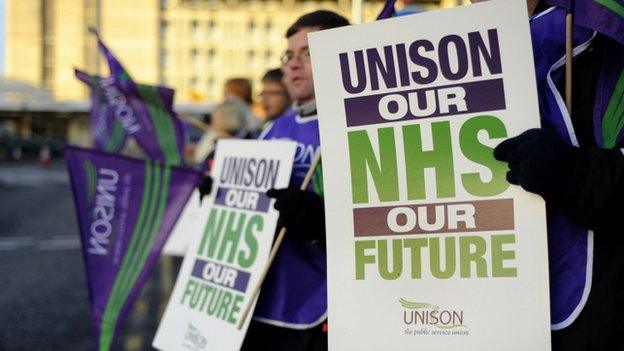
- Published27 May 2015
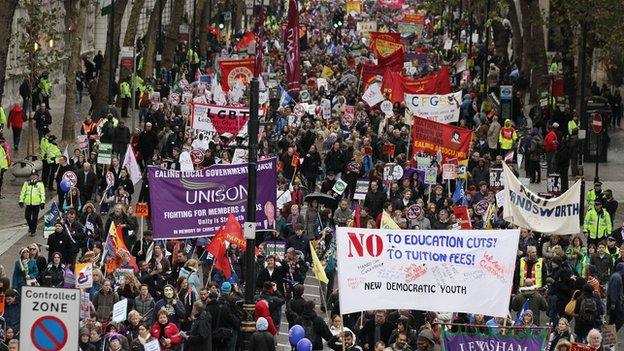
- Published14 September 2015
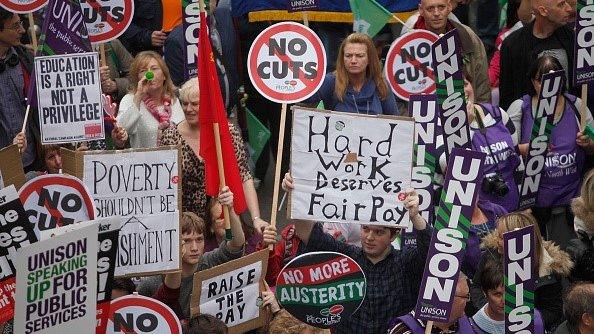
- Published19 May 2015
